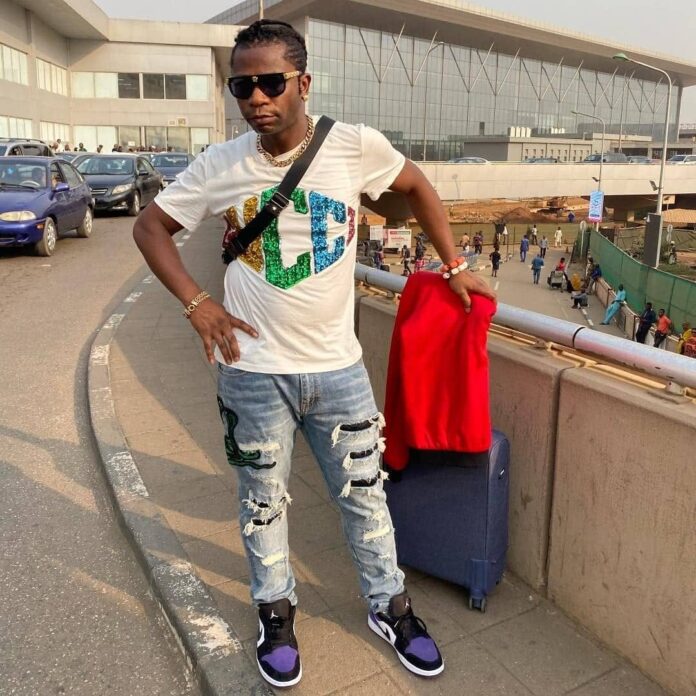Nigerian musician Darlington Okoye, popularly known as Speed Darlington or “Akpi,” is at the center of a fresh legal storm after being transferred from Owerri, Imo State, to Abuja by the Nigeria Police Force.
Sources close to the case claim that this move is part of a scheme to inflict harsher punishment on the controversial artist.
SaharaReporters revealed that Darlington was moved to the Force Intelligence Department (FID) in Abuja, a step personally overseen by Deputy Inspector-General (DIG) Dasuki Galadanchi.
“Speed Darlington is being moved to Abuja. He is being prosecuted by DIG Dasuki Galadanchi, who felt his previous punishment was too short,” an anonymous source disclosed.
Another source confirmed that Galadanchi had taken a personal interest in Darlington’s case files, seizing control from the police unit that initially handled his arrest.
Darlington’s troubles began earlier this week when he was arrested in Owerri during a show.
The arrest reportedly stems from allegations of cyberstalking Nigerian afrobeat superstar Burna Boy, whose legal team filed a petition against Darlington.
Human rights lawyer Deji Adeyanju, representing Darlington, has been vocal about the arrest.
He took to social media to accuse Burna Boy of hypocrisy.
“Burna Boy behind harassment of Speed Darlington by the police. This is someone who has been singing against oppression and forming junior Fela, now oppressing Akpi,” Adeyanju wrote.
According to Adeyanju, Darlington was initially arrested and detained at the Guzape office of the Inspector General of Police’s (IGP) Intelligence Response Team (IRT) in Abuja.
The lawyer visited Darlington in detention and confirmed the cyberstalking allegations but argued that they did not justify the musician’s arrest.
“I met Speed Darlington, and he’s in good spirits. We are working to get him released on bail as soon as possible,” Adeyanju assured supporters.
He also revealed that police officials allowed him to read the petition but refused to release a copy.
Darlington, known for his outlandish persona and controversial statements, has frequently courted attention and sparked debates in the Nigerian music scene.
His arrest has drawn widespread reactions, with many questioning the motives behind the police’s actions.
Observers have raised concerns about the influence of powerful figures in what should be impartial legal processes.
“This case highlights the misuse of police power to settle personal scores,” one activist commented.
Burna Boy, known for his socially conscious music, has come under fire for allegedly using his influence to target Darlington.
Fans and critics alike have expressed disappointment, accusing Burna Boy of contradicting the anti-oppression stance he often promotes in his songs.
“This is not what we expected from Burna Boy. He should practice what he preaches,” a fan wrote online.
Darlington’s fans have also taken to social media to demand his release, using hashtags and organizing campaigns to draw attention to his plight.
The controversy has added a new dimension to the ongoing conversation about artists’ rights, freedom of expression, and the role of law enforcement in Nigeria.
Legal experts have called for transparency and fairness in handling the case.

